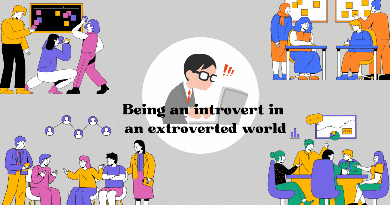Unleashing Your Inner Force: 3 Techniques to Build Lasting Influence
Sharing is Caring:
In a world where connections define opportunities, personal influence is more than a skill—it’s a superpower. Whether you’re navigating your career, relationships, or personal goals, your personality is the foundation of your ability to inspire and motivate others. The good news? Influence isn’t something you’re simply born with; it’s a skill you can develop and master.
Let’s explore three powerful techniques that can transform your personality into a beacon of lasting influence.
1. The Art of Authenticity: Be Unapologetically You
Authenticity is magnetic. People are drawn to individuals who are genuine, honest, and transparent. The foundation of lasting influence lies in your ability to show up as your true self—flaws and all.
Why Authenticity Matters
In a world of curated social media feeds and superficial interactions, authenticity is a rare gem. It fosters trust, the cornerstone of influence. When people feel they can trust you, they’re more likely to follow your lead, support your ideas, and invest in your vision.
How to Cultivate Authenticity
- Know Your Values: Take time to reflect on your core beliefs and principles. Align your actions and decisions with these values to build integrity and consistency.
- Embrace Vulnerability: Share your struggles and lessons learned. Vulnerability doesn’t make you weak; it makes you relatable.
- Resist the Urge to People-Please: Say no when necessary, and avoid compromising your values to fit in or gain approval.
Practical Example
Consider a leader who openly admits their mistakes and shares the lessons they’ve learned. Instead of losing credibility, they gain respect and admiration for their humility and honesty. When authenticity becomes your default, people not only respect you but feel connected to you.
2. Mastering Emotional Intelligence: Understand and Empathize
Emotional intelligence (EI) is the ability to recognize, understand, and manage your emotions while empathizing with others. This skill is essential for building meaningful relationships and creating a lasting impact.
The Four Pillars of Emotional Intelligence
- Self-Awareness: Understand your emotional triggers and how they influence your behavior.
- Self-Regulation: Practice staying calm under pressure and responding thoughtfully rather than reacting impulsively.
- Social Awareness: Tune into the emotions and needs of others by practicing active listening and observing non-verbal cues.
- Relationship Management: Foster trust, resolve conflicts constructively, and inspire those around you.
Why EI Amplifies Influence
When you understand and validate others’ emotions, you create an environment where people feel seen, heard, and valued. This deepens connections and fosters loyalty, making your influence far more impactful.
How to Boost Emotional Intelligence
- Practice Mindfulness: Regularly check in with your emotions and reflect on how they’re influencing your thoughts and actions.
- Seek Feedback: Ask trusted friends or colleagues how you come across emotionally. Use their insights to grow.
- Develop Empathy: Challenge yourself to view situations from others’ perspectives, especially during disagreements.
Practical Example
Imagine a manager who notices when a team member seems stressed and offers support without judgment. This simple act of empathy builds trust, boosts morale, and solidifies the manager’s influence as a caring and effective leader.
3. Sharpening Your Communication Skills: Speak with Impact
Your words can either empower or alienate. Effective communication is about clarity, connection, and conviction. To build lasting influence, your communication must inspire action.
The Three Cs of Influential Communication
- Clarity: Be concise and straightforward. Avoid jargon and ensure your message is easily understood.
- Connection: Tailor your communication to your audience. Address their needs, concerns, and aspirations.
- Conviction: Speak with confidence and passion. People are more likely to follow those who believe in their own message.
Strategies for Improving Communication
- Active Listening: Truly listen to others before responding. This shows respect and helps you craft thoughtful replies.
- Non-Verbal Communication: Pay attention to your body language, tone of voice, and facial expressions. These often convey more than your words.
- Storytelling: Share relatable anecdotes or examples to illustrate your points. Stories are memorable and emotionally engaging.
Why Communication Matters for Influence
The way you communicate can make or break your ability to lead. Powerful communicators inspire trust, convey competence, and rally others around their ideas.
Practical Example
Think of a speaker who captivates an audience with a compelling story, clear points, and confident delivery. Their words linger long after the presentation, inspiring action and change. By refining your communication, you can leave a similar impression.
The Compound Effect of These Techniques
When combined, authenticity, emotional intelligence, and effective communication create a synergistic effect. Together, they form a foundation for influence that is not only impactful but enduring.
How to Integrate These Techniques
- Start small. Focus on improving one area at a time.
- Practice consistently. Influence grows over time through repeated effort and intentionality.
- Seek mentorship. Learn from those who exemplify these traits and apply their insights to your journey.
Final Thoughts: Influence That Stands the Test of Time
Building lasting influence isn’t about manipulation or superficial charm; it’s about cultivating genuine connections and empowering others. By embracing authenticity, mastering emotional intelligence, and refining your communication skills, you can create a ripple effect of impact that extends far beyond yourself.
Your personality is your power. When harnessed intentionally, it can inspire, uplift, and transform the lives of others. The journey begins with a single step—start today.



